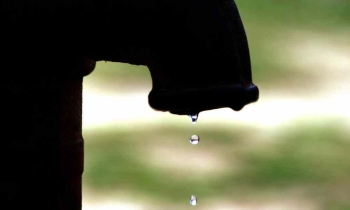Until September 2004, it was illegal for the voice of a woman singing to be broadcast on the radio in Afghanistan. I wanted to see what was going on in Afghanistan since the invasion and spent six weeks writing about the US Army in Kandahar. Later, I visited Herat in the West of Afghanistan.
Herat is probably the most stable and fertile part of Afghanistan. During my trip there I was able to visit Radio Sahar. Sahar means "dawn" in Dari, the most common language of Afghanistan. Just as in English, it is also a woman's name.
Humaira Habib is the station manager of the Radio Sahar. Humaira is in her early twenties and is a student in journalism at Herat University. She has worked for 2 years at the radio station.
Her station is one of the first Independent radio stations in Afghanistan, and the first devoted to women in Herat. Canada established the radio station. The Institute for Media, Policy, and Civil Society (IMPACS), a Canadian media NGO, negotiated a license from Afghanistan's central government. The American company Internews donated additional equipment. The station gets by on donations and selling air time for Public Service Announcements.
Humaira was 19 in October 2003 when she became a founding member of Radio Sahar. In 2006 she will be in the first graduating class of Herat University's Journalism Faculty. She has worked as station manager, program director, technician and reporter since then.
During most of the Taliban regime, Humaira was in Pakistan. She returned to Herat in 2000. She told me that the Taliban were not very strong in Herat, even before the US invasion in 2001.
My work in Herat was with the Italian Air Force. During my stay in Afghanistan, I have grown a large beard and adopted Afghan dress. I arrived with an interpreter and a convoy of Italian soldiers. Humaira speaks English. She didn't realize that I was a journalist until the end of the interview.
I asked her if she had been threatened by anyone for starting this Sahar. She told me she had not, but I did find one report on the internet that last year the radio station did have security guards posted out front in case of some attack.
"We hope to be here and work forever," Humaira said.
The radio now broadcasts from 7 a.m. to 7 p.m. Women's rights, entertainment, and even a call in radio show are part of the programs. Men and women listen to the radio shows. The radio allows access to the women at home, cab drivers, and many people across the city within ear shot of the radio. The programs are kept simple and encourage new thoughts and ideas for a progressive Afghan society.
Humaira said that Radio Sahar is not broadcast on the internet, currently, but can be found at 88.7 FM within 45 km of Herat. The station's eight staff members--six women and two men--broadcast in Dari to over half a million listeners, daily.
"We have technical problems," she said. Besides troubles with the nuts and bolts of radio production, she is looking for people to help train radio journalists.
"We are trying to get some new and good shows," she added.
Having radio stations like Sahar works for promotions of women's rights, she said. "It's so nice for them; it encourages them."
Humaira Habib can be reached at habib_humaira@hotmail.com









